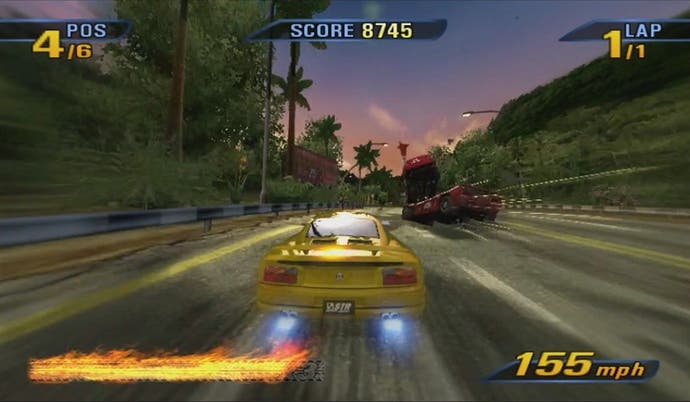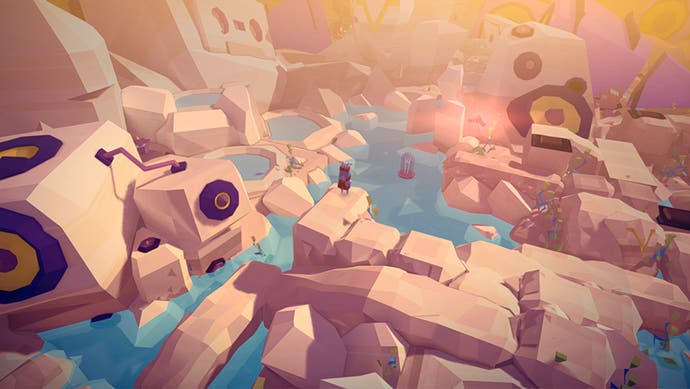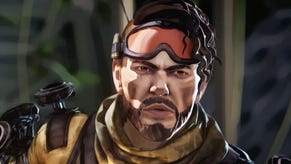How games can lend us their sense of movement
Fast and slow.
Ramadan can be tough sometimes. No, I'm not talking about the praying, the fasting or the interrupted sleep. I'm talking about making the time to play games, and I know I speak for all of us when I mention a growing collection of games we haven't even thought of loading up for the first time.
Sometimes we have no choice but let ourselves be consumed by an addiction to a particular game. Many moons ago (quite literally), the one game that consumed my time was Burnout 3, which I will try to mention in everything I write until EA let me play it on my current Xbox and the next one. I still remember staying up all night and morning during the Ramadan following its release, trying to capture as many first place gold medals in every single event they throw at you.
What's weird is how the adrenaline starts to rush within you almost instantly - even when you think about the game well after playing it. I was a teenager at the time and couldn't drive, but I can see now with many cranks filling up the roads how comically satisfying it is to race at breakneck speeds in the game. But then, the continuous swerving you have to endure translates into real life too. To avoid the human traffic of big crowds or even the rush at my local shopping centre, I like to imagine my body as one of Burnout's stylish vehicles, avoiding the juggernauts travelling in groups at contrasting speeds. It's as if every busy location replicates the traffic of Chicago's downtown underpass, obtrusive pillars ready to smack you, just like they happily do in the game.

It's not the only video game I've noticed over the years that's made my mind create these mini-games as I navigate the real world. Currently, my tech needs have made me an iSnob. That means every now and again, in order to play the Adventures of Poco Eco I have to swipe my brother's Hudl tablet. Poco Eco's a bizarre, abstract and wonderful-looking game. You're tasked with helping Poco Eco find the "lost sounds" of his tribe through small puzzles.
What I often end up doing is purposefully stumble back and forth during the first level, enjoying the soundtrack for way too long and letting the tablet heat my fingers towards discomfort. Lowlands, by iamyank is somehow both relaxing and upbeat, and I'm not usually a fidgety person but I end up rocking my knee up and down to this song. In fact, playing it in the background as I type these words just now, I started clicking my fingers before snapping myself back to this paragraph.

With such little time to dive into fresh narratives and learn new control schemes, I'm now consumed by Apex Legends, the online battle royale shooter. But tidying the house a few weeks ago made me picture myself as one of the characters, choosing which items to keep or throw out, just as you loot containers and buildings in the game. It made me feel small again, in a good way, reminding me of how everything seems to be a place to explore, to forage. After helping my nephew to a third place finish during a recent visit, he went back downstairs and constructed a pillow fort to play with his numerous Transformers toys, creating his own little game world and devising his own rules.
I'm unsure how to quantify how this perspective helps bring my games to life, especially as everyone has their own eccentricities, some of which will be shared and others kept secret. But even now, as this cursor in front of me blinks slowly, it's like I'm being taunted. It needs to be defeated by having to blink and move uncontrollably, so I can claim some sort of victory. This is what games can do to you. Even tedious things become obsessively interesting.









.png?width=291&height=164&fit=crop&quality=80&format=jpg&auto=webp)